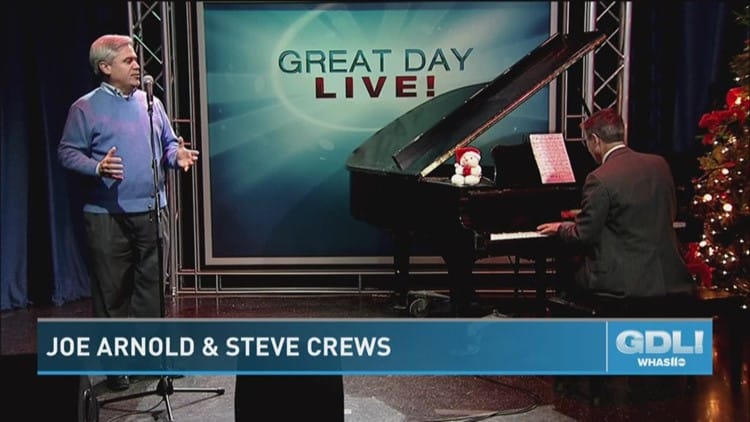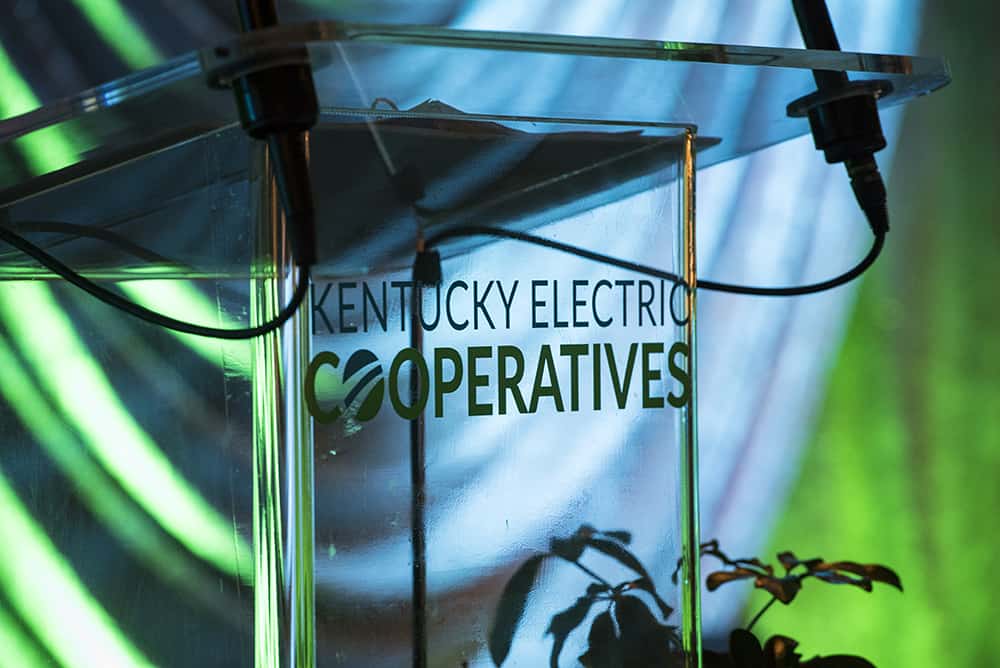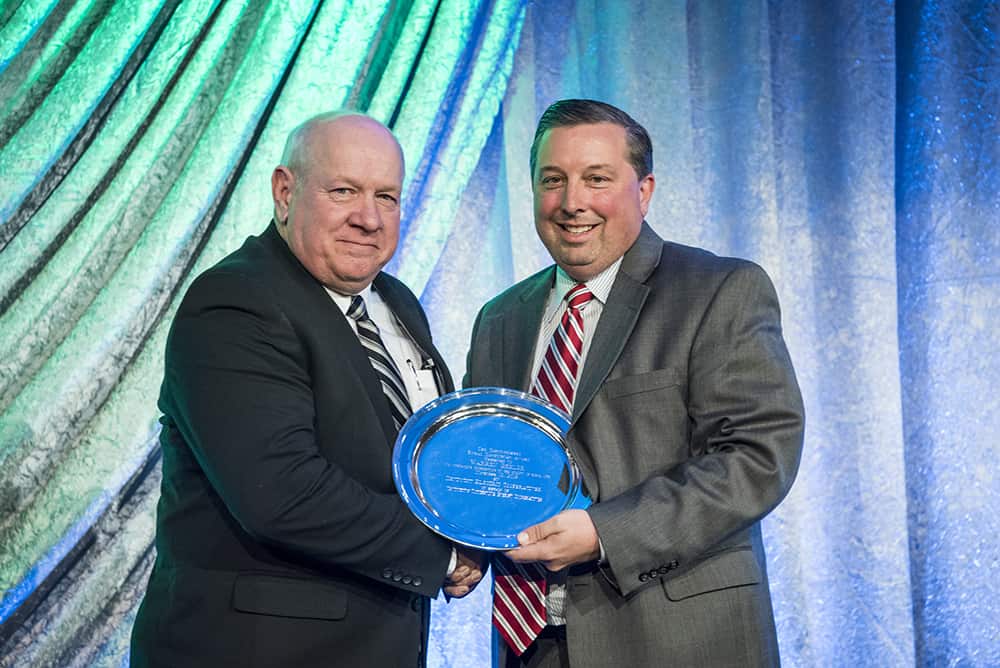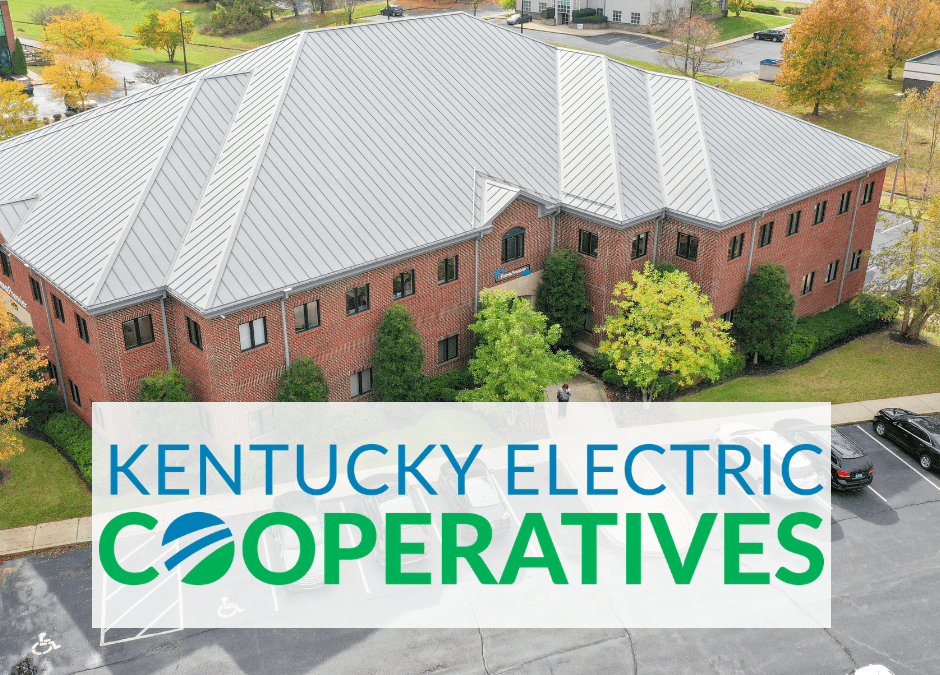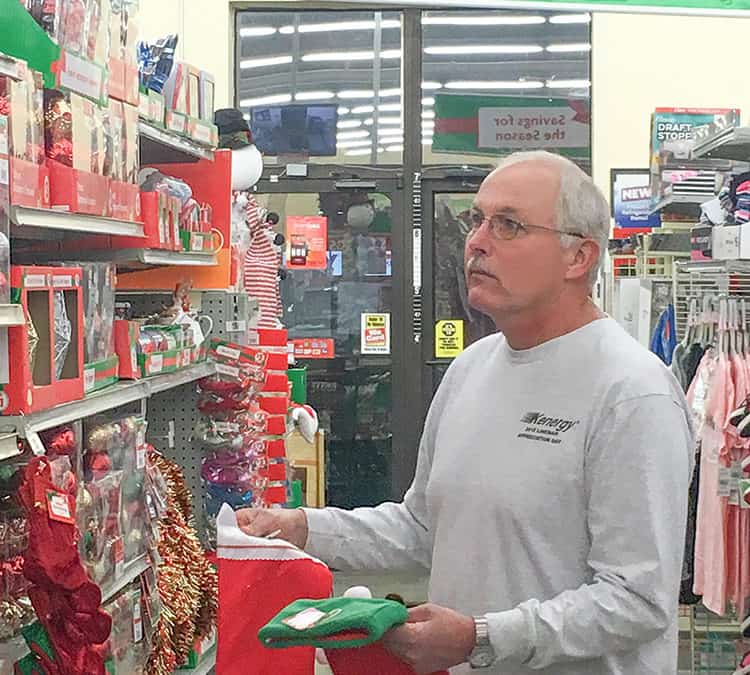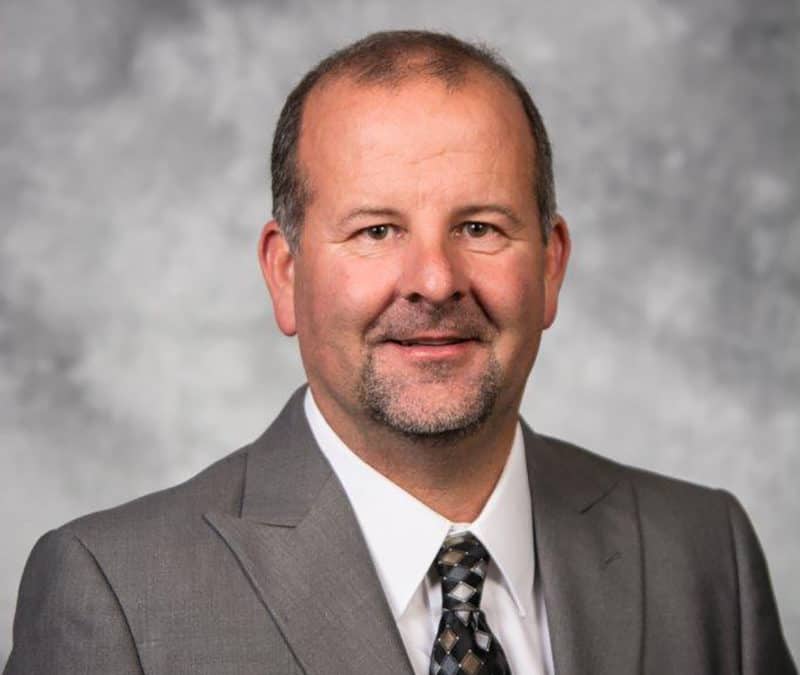Every year during the holidays, Great Day Live, a program on WHAS11 in Louisville, invites one of its favorite duos to the show to spread a little Christmas cheer throughout the studio. Joe Arnold, vice president for Strategic Communications for Kentucky Electric Cooperatives and a former WHAS11 employee, stopped by with Steve Crews to play some holiday classics.
Author: Chris Hayes
2019 WIRE Scholarships Available For KY College Students
The Kentucky Chapter of Women in Rural Electrification (WIRE) is offering three $1,000 scholarships to Kentucky college students.
The scholarships are open to any applicant who meets the following criteria:
- Student or Student’s family must be served by a Kentucky Rural Electric Cooperative.
- Student must have completed at least 60 credit hours at the beginning of the 2018 Fall College Term.
- Student must attend a Kentucky college or university
The scholarship application deadline is JUNE 9, 2019. Scholarship recipients will be notified in July. Scholarships will be awards based on academic achievements, extracurricular activities, career goals, recommendations from professors and community leaders, and financial need.
Mail applications to: Mary Beth Dennis, KAEC, P.O. Box 32170, Louisville, KY 40232.
Tech trend to watch: blockchain
Disruptive technology may change the way electronic transactions are processed
We are living in the age where the pace of innovation and disruption is getting faster and faster. As a result, keeping up with the latest-and-greatest technologies is becoming increasingly difficult, not to mention expensive. It seems that as soon as we upgrade our smartphone, a new model with a bigger screen and cooler features is released.
One word that comes with a lot of hype and confusion is “blockchain.” Because this technology is completely digital, thereby intangible, it’s tough to truly grasp exactly what it is.
Electric cooperatives know that with any new technology, they must view it from every angle and consider how it will ultimately improve their services. With blockchain, that means recognizing its potential and limitations, both for Kentucky’s electric co-ops and the energy industry as a whole. It also means asking whether blockchain truly benefits our consumer-members.
Let’s take a look at how blockchain works.
What is blockchain, exactly?
In simplest terms, blockchain is a digital, shared ledger that records transactions between buyers and sellers. The transaction records, or blocks, are linked together in a time series, or chain. When a new transaction is completed, a new block is added to the chain.
Electric co-ops make numerous transactions daily, such as billing, contracting with vendors and purchasing power, and even though we have secure, well-functioning systems already in place to handle these types of transactions, some see this as a potential application for blockchain and electric utilities.
What makes blockchain unique?
When a transaction takes place, it’s recorded on a network of computers, also known as nodes. The chain is shared and synchronized among all participating nodes in the blockchain network, making it very difficult to alter the chain without the interference being detected.
Another important characteristic of blockchain is that it’s decentralized. As noted before, a blockchain is distributed across the systems of all participating parties, rather than residing within a single institution, like a bank. This particular feature is why some consider the technology disruptive. Someone in Kentucky can send money to someone in Japan directly, without needing to go through a third party. This feature makes it transparent and eliminates the need for the trusted third party.
What are some real-life examples and applications of blockchain technology?
Currently, blockchain works best when the product being bought or sold is virtual rather than physical. If the transaction involves a material product, whether it be a new home thermostat or a jumbo jet, some trusted agent usually is required to certify that the physical transfer actually takes place.
Eventually, this technology may even start to intersect areas of your life when recordkeeping and processing requires security, efficiency and connectivity. In the coming years, experts see potential for blockchain technology in the fields of health care, supply-chain management, finance and lending, and more. Blockchain could even change the way we prove our identity, as well as issue and maintain birth, wedding and death certificates.
Blockchain, like all software, is a means to an end that will provide different solutions to different needs, and determining its impact starts with understanding what the technology is and how it works.
Time will tell if blockchain proves useful for electric utilities in the future, but for now, they are keeping an eye on this technology trend. Their top priority will always be to provide consumer-members with the safe, reliable and affordable energy they depend on.
Kaley Lockwood writes on consumer and cooperative affairs for the National Rural Electric Cooperative Association.
How to prevent heat from going up the chimney
We use a heat pump but want an efficient, wood-burning fireplace/insert for extra heat and emergencies. Our masonry fireplace seems to chill the house. What should we look for?—Paul
Using an open masonry fireplace can cool your house and result in higher overall heating costs. Heated indoor air is drawn into the fireplace and lost up the chimney, and cold outdoor air is drawn into your house through windows, doors and gaps. While you may feel comfortable by the fireplace, your heat pump or furnace can run up to 10 percent more to warm the rest of the house.
Efficient wood-burning fireplaces or inserts have tight-sealing glass doors to minimize loss of heated room air. A 42-inch wide, EPA-certified wood-burning fireplace can produce from 8,000 to 60,000 Btu per hour, some with overall efficiency as high as 77 percent.
 If your old fireplace is large, you may be able to fit a new insert inside it, saving hundreds of dollars. If you plan to install a fireplace elsewhere, installing a zero-clearance model is best, as the double-walled design with insulation can be safely placed against wood wall studs.
If your old fireplace is large, you may be able to fit a new insert inside it, saving hundreds of dollars. If you plan to install a fireplace elsewhere, installing a zero-clearance model is best, as the double-walled design with insulation can be safely placed against wood wall studs.
A heating-circulating type of fireplace is a must for the best efficiency and more heated air output. Many designs operate without a fan and rely on natural flow of room air around the superhot firebox. As the air gets hot, it becomes less dense and naturally flows out into the room through an upper vent. This pulls cooler room air into a lower inlet to be heated.
For the greatest efficiency and least drafts indoors, install an outdoor combustion air kit before you install the fireplace, as a duct is required. Installation is simpler with a raised hearth. A register with at least 12 square inches of net free vent area should be adequate to run it under the floor to the front of the firebox.
JAMES DULLEY is a nationally syndicated columnist who writes on energy efficiency and do-it-yourself energy topics.
2018 Kentucky Electric Cooperatives Annual Meeting educates, inspires
With the theme of “Your Neighbor, Your Energy,” Kentucky Electric Cooperatives’ 72nd Annual Meeting on November 19-20, 2018, highlighted both the important role electric co-ops play in their communities and the issues facing the cooperative program today. Co-op directors, managers and staff from across Kentucky received practical training, inspiring presentations and important updates from the energy sector.
The meeting debuted the new name for the statewide association, Kentucky Electric Cooperatives, and featured speakers such as a former major league baseball player, the pilot of Air Force One on 9/11 and a longtime livestock show judge who has impacted the lives of countless Kentucky youths.
“This was one of the most important events we’ve hosted,” said Chris Perry, president and CEO of Kentucky Electric Cooperatives. “We offered an immense amount of training for our members, which will continue to be a priority for us. Overall, the meeting highlighted the values, goals and challenges we face, and underscored Kentucky Electric Cooperatives’ mission of serving and supporting Kentucky’s electric co-ops.”
On Monday, Nov. 19, nearly 350 people representing the 26 electric co-ops served by the Kentucky Electric Cooperatives joined valued partners attending the two-day meeting at the Marriott in downtown Louisville.
The first day began with a meeting of the Kentucky Chapter of Women in Rural Electrification (WIRE) committee followed by the Annual Membership and Board Meeting.
During the Annual and Board meeting, the 2019 Kentucky Electric Cooperatives Board of Directors was elected:
Big Rivers Electric Corporation: Bob Berry, Wayne Elliott
Big Sandy RECC: Bruce Aaron Davis, Greg Davis
Blue Grass Energy: Mike Williams, Paul Tucker
Clark Energy: Chris Brewer, Steven Hale
Cumberland Valley RECC: Ted Hampton, Vernon Shelley
East Kentucky Power Corporation: Tony Campbell, Alan Ahrman
Farmers RECC: Bill Prather, Paul Hawkins
Fleming-Mason Energy: Joni Hazelrigg, John Roe
Grayson RECC: Carol Hall Fraley, Jimmy Whitt
Gibson EMC: Dan Rodamaker, David Kimbell
Inter-County Energy: Jerry Carter, Jason Todd
Jackson Energy: Carol Wright, Phil Thompson
Jackson Purchase Energy: Greg Grissom, Lee Bearden
Kenergy Corp: Jeff Hohn, Chris Mitchell
Licking Valley RECC: Kerry Howard, Tommy Hill
Meade County RECC: Marty Littrel, Darla Sipes
Nolin RECC: Mickey Miller, Linda Grimes
Owen Electric: Mark Stallons, Robert True
Pennyrile Electric: Alan Gates, Jimmy Futrell
Salt River Electric: Tim Sharp, Linda West
Shelby Energy: Jack Bragg, Jr., Pat Hargadon
South Kentucky RECC: Dennis Holt, Rick Halloran
Taylor County RECC: Barry Myers, Christopher Tucker
Tri-County EMC: Paul Thompson, Veachel Harlan
Warren RECC: Scott Ramsey, Michael McGuirk
West Kentucky RECC: David Smart, Eddy Wright
During lunch, Michael Hodges, a high school senior who attended the 2018 Washington Youth Tour, sponsored by Pennyrile Electric, Hopkinsville, and was elected to the Youth Leadership Council, spoke about what a great impact the trip has had on his life.
Joe Arnold, vice-president of Strategic Communications for Kentucky Electric Cooperatives, moderated a discussion with Scott Jennings, a founding partner of RunSwitch PR and political analyst for CNN. Jennings provided analysis of the 2018 mid-term election, handicapped the 2019 election cycle in Kentucky and made some predictions about the 2020 presidential election year.
In the afternoon, Terry Boston, retired CEO of PJM Interconnection, presented “Smart, Secure and Sustainable… “The Future Ain’t What It Used to Be.” In his presentation, Boston covered many of the key issues co-ops face, including Co2 emissions and cybersecurity.
Following a reception hosted by Federated Rural Electric Insurance, guests filled the ballroom for the annual banquet.
Since 1982, Kentucky Electric Cooperatives has presented the Distinguished Rural Kentuckian award to individuals who have helped improve the lives of those living in rural Kentucky. The list of previous recipients includes Gov. Bert T. Combs, Barney Arnold, Gov.Martha Layne Collins, Joe B. Hall, and last year’s honoree, Byron Crawford.
The 2018 Distinguished Rural Kentuckian honored at the banquet is Warren Beeler, an accomplished agriculture leader in the state who has worked on behalf of farmers for two decades and is regarded as one of the most experienced livestock judges in the nation.
After Beeler’s remarks, Chris Burke, who sealed a playoff series for the Houston Astros with a dramatic 18thinning home run, delivered the banquet’s keynote speech. Burke, a Louisville native, echoed Beeler’s remarks on the importance of family and how encouraging words from parents and coaches inspired him to achieve his baseball dream.
The next morning, Col. Mark W. Tillman (ret.), gave a harrowing account of what it was like to be the pilot of Air Force One during the 9/11 attacks in 2001. Tillman recounted how he flew President George W. Bush from Florida to several points across the United States on that day to keep him safe from the terrorist attacks.
The meeting wrapped with the announcement of the new co-op managers, directors and attorneys and recognition of several co-op employees for their years of service.
New Managers, Directors, & Attorneys
Richard Cobb, Director, Blue Grass Energy
Lu Young, Director, Blue Grass Energy
Tyson Kamuf, Attorney, Big Rivers Electric
Greg Carter, Attorney, West Kentucky RECC
Tim Purcell, Director, Warren RECC
Service Awards
15 Years
Joan Mouser, Trustee, Gibson EMC
Rana Buchanan, Trustee, Gibson EMC
A.C. “Happy” Cahoe, Director, Salt River Electric
Raymond Rucker, Vice President, Taylor County RECC
Ronald Bailey, Director, Tri-County Electric
Jeff Downing, Director, Tri-County Electric
Robert Moore, Director, Big Sandy RECC
Greg Davis, Director, Big Sandy RECC
20 Years
Dennis Moneyhon, Chairman, Bluegrass Energy
Don Leathers, Trustee, Gibson EMC
Paul Thompson, CEO, Tri-County Electric
Tom Saunders, Director, Fleming-Mason Energy
Dennis Barnes, Director, West Kentucky RECC
Steven Hale, Director, Clark Energy
25 Years
Lee Bearden, Director, Jackson Purchase
Wayne Elliott, Director, Jackson Purchase
30 Years
Robert Rhodes, Director, Meade County RECC
35 Years
A.L. “Buddy” Rosenberger, Director, Nolin RECC
45 Years
Michael “Mickey” Miller, CEO, Nolin RECC
Gayle Robbins, Attorney, West KY RECC
‘Mr. Agriculture,’ Warren Beeler, honored as 2018 ‘Distinguished Rural Kentuckian’

LOUISVILLE — Agriculture advocate, renowned livestock judge and respected state leader Warren Beeler was honored as the “2018 Distinguished Rural Kentuckian” at the 72nd Annual Meeting of Kentucky Electric Cooperatives. The award is the highest honor bestowed by Kentucky’s electric cooperatives, which consists of 26 co-ops across the commonwealth.
Prior to his 2016 appointment as executive director of the Governor’s Office of Agriculture Policy, Beeler worked for the Kentucky Department of Agriculture for 17 years, including as director of agriculture policy.
Beeler is a graduate of Western Kentucky University, where he majored in animal science. In addition to his role as director of agriculture policy, Beeler served as director of livestock marketing, director of the Shows and Fairs Division, and livestock marketing specialist. Before joining the Kentucky Department of Agriculture, Beeler served as an agriculture extension specialist at the University of Kentucky, where he helped develop the first on-farm testing program for swine in Kentucky.
A Spring Lick, Kentucky native who grew up helping on the family’s dairy farm, Beeler made a name for himself in the swine industry. He is recognized as one of the greatest swine geneticists in the U.S. and has produced some of the country’s finest breeding stock. As a farmer in Caneyville, Beeler has shown four grand champion hogs and two grand champion lambs at the Kentucky State Fair.
Yet Beeler is perhaps best known for his contributions to youth development. He established numerous livestock clinics and started a judging evaluation clinic that evolved into Kentucky’s popular junior livestock expos.
“I’ve judged livestock shows for 43 years in 42 states, and I don’t do it for the livestock,” Beeler said. “I do it for the kids. And the thing about being a judge is that they will listen to you. So, great judges are great teachers.”
Beeler and his wife, Dee Dee, raised five children on their farm in Caneyville. In his remarks upon accepting the award, Beeler expressed gratitude to his late parents for the values they instilled in him on the farm, working hard and love of family.
“Because the most important thing I think anybody can do is work,” Beeler said. “Success is earned. Most people that don’t go to the barn when they don’t have to, or things they do when they’re not asked. It’s what you do when you don’t have to do anything that makes people really special.”
Beeler joins an impressive list of Distinguished Rural Kentuckians, including other several legendary figures in Kentucky agriculture, such as farm broadcaster Barney Arnold, the state fair board’s Smith Broadbent and Harold Workman, and Agriculture Commissioner Billy Ray Smith.
“I think about all the Kentuckians in the world and rural cooperatives, and what a service that they offer,” Beeler said. “I think there are people way more deserving than me. I am very proud, very proud to even be considered, and I love Kentucky.”
Warren Beeler’s acceptance speech:
Background on Distinguished Rural Kentuckian Award:
Since 1982, the Distinguished Rural Kentuckian honor has been awarded by Kentucky’s member-owned electric cooperatives. Previous Distinguished Rural Kentuckians include elected leaders, authors, journalists, business executives, physicians, and sports champions. The award recognizes outstanding individuals who have devoted their lives to Kentucky in a way that matches the co-op mission of enhancing the quality of life here.
United we stand: Statewide association for electric cooperatives updates name
Kentucky Electric Cooperatives is the new identity of our statewide association, which represents and supports all 26 electric co-ops in the Bluegrass State. These locally owned co-ops provide power to more than 1.5 million people across 117 of the state’s 120 counties.

Our services to your local co-op include safety and management training, communications support led by our flagship publication, Kentucky Living, and public advocacy before the state legislature and state agencies.
We work to ensure that legislation and regulations won’t adversely affect your local co-op’s ability to provide safe, reliable and affordable electricity. That’s why we need your help to speak up for your co-op to your local elected leaders.
Our new name reflects the unity and collective strength of Kentucky co-ops. When we work together and present a unified front, our co-ops can achieve much more than we can as separate entities. This is an important collaboration to help your local co-op continue to efficiently and effectively serve you.
Though the commitment of the statewide association to its member co-ops has remained constant since we formed 75 years ago, every generation has had to adapt to its own unique circumstances and make careful and conscientious choices.
We continue to evolve, just like your local electric co-op. Kentucky Rural Electric Cooperatives Corporation (KRECC) was officially incorporated in 1948, and in 1974 we became Kentucky Association of Electric Cooperatives (KAEC).
At Kentucky Electric Cooperatives, each co-op brings its unique experience to the table. Your co-op was built by, belongs to, and is led by people in its home communities. Yet one of our principles is cooperation among cooperatives, and our unity has never been more important than in this era of co-op history.
Making dreams come true and saving lives
Holiday traditions
HENDERSON
Traditions are an essential part of the holidays, and that is certainly true at the Pendergraft home in Henderson.
Each Thanksgiving the Pendergrafts savor a big meal and then pull out their lists. It’s time to go shopping—for some 600 children.
Larry Pendergraft, his brother Richard and their siblings are the heart of the Henderson Goodfellows, a local organization that for 57 years has provided children with clothes, toys and a party to celebrate Christmas.
They get the names of needy children from local schools and the money to care for their needs from local people—mostly in the form of $5, $10 and $20 donations, which “although small, really add up,” according to Larry.
“When I was very young, a little girl was sitting on the steps of the school crying because she had never gotten anything from Santa,” Larry recalls. “I was able to pick out a tea set from our stock and give it to her. I’ve never forgotten how happy it made her.”
Larry has joined in every holiday season since, raising funds then making Christmas dreams come true for local children ages 4-11.

Family of firefighters
EWING
Before the days of 911 in Fleming County, the community of Ewing had a phone tree for emergencies. One person called the next until everyone got the information. Young boys such as Grover Money grew into men by watching their forefathers collectively handle emergencies. They saw lives rescued and homes saved from ruin.
When he matured, Money began volunteering for the Ewing Volunteer Fire Department, and at 61, he is still a volunteer firefighter.
“Nationwide, 85 or 95 percent of firefighters are volunteers,” notes Money. “We are the first line of help available. Saving someone’s life is the No. 1 priority, and saving property is second. Many of our neighbors don’t have insurance, so it is rewarding to save their belongings as well.”
Money is also in the business of saving lives in his job for Fleming-Mason Energy. He has worked at the co-op since May 2, 1977, currently as the safety coordinator and staking engineer.
Money’s work ethic and volunteer spirit will live on another generation. Son Sam, 28, is a professional firefighter with Florence Fire EMS and also volunteers in Ewing with his dad.
Gates selected as Pennyrile Electric’s President and CEO
Pennyrile Electric’s Board of Directors selected Alan Gates as the cooperatives new President & CEO. Gates, who has most recently filled the role of vice president of operations and technical services, has held several positions throughout his tenure. Gates was hired in 1989 as an engineering aide. He soon moved to the position of substation technician and later promoted to manager of technical services.
Jimmy Futrell, chairman of the board of directors, says, “We knew, with the strength of our internal employees, we could find our next CEO from within the cooperative. Alan has been instrumental in several positive changes the cooperative has made over his years of employment. We are confident in his ability to lead the cooperative in the years ahead.”
“I want to thank the board of directors for giving me such a great opportunity,” Gates said. “Pennyrile Electric is a strong organization with great employees. I look forward to serving our membership and continuing our mission to provide safe reliable electricity.”
Alan resides in Hopkinsville, Kentucky with his wife, Ashley. They have two children, Marley, 21, and Latham, 17.
First 72 On You – Be Prepared to Stay Safe and Healthy in Cold Temps
FRANKFORT (Nov. 15, 2018) – As part of the year-long First 72 On You campaign, the Department for Public Health (DPH), within the Cabinet for Health and Family Services (CHFS), is spotlighting cold weather preparedness efforts to remind Kentuckians of the dangers of carbon monoxide (CO) poisoning, hypothermia and foodborne illness from possible power outages and cold weather conditions.
A Facebook Live discussion on this important topic will be held on Friday, Nov. 16 at 1 p.m. (Eastern). Watch on the Cabinet’s Facebook page: http://www.facebook.com/kychfs.
“When temperatures drop significantly below normal such as during a cold spell or during a long-term power outage, staying warm and safe can become a challenge,” said Jeffrey Howard Jr., M.D., DPH commissioner. “Carbon monoxide poisoning and hypothermia are deadly and should be taken seriously. We urge Kentuckians to take steps to prevent exposure to both cold temperatures and carbon monoxide by avoiding using alternative heating sources like propane heaters, gas-powered stoves and charcoal grills while indoors. It can be a matter of life or death.”
Officials at DPH strongly encourage residents to follow these guidelines below to prevent injury, illness or death:
Carbon Monoxide Safety
- Avoid using alternative heating sources such as portable generators, kerosene heaters, propane gas stoves and ovens heated with gasoline indoors because this can lead to carbon monoxide poisoning.
- Don’t use a generator, charcoal grill, camp stove or other gasoline or charcoal-burning device inside your home, basement, garage or near a window.
- Don’t run a car or truck inside a garage attached to your house, even if you leave the door open.
- Don’t burn items in a stove or fireplace that isn’t properly vented.
- Don’t heat your house with a gas oven.
- Don’t place a portable heater within reach of children or pets and don’t use a power strip or extension cord. Look for the Underwriter’s Laboratory (UL) label and carefully read instructions before use.
- Install carbon monoxide detectors in your home and replace batteries as required. If the detector sounds, leave your home immediately and dial 911.
- Seek immediate medical attention by calling 911 if you are experiencing symptoms of carbon monoxide poisoning. Initial symptoms include headache, nausea, vomiting and fatigue. If recognized early, carbon monoxide poisoning is treatable.
- If you are experiencing symptoms of carbon monoxide poisoning or if you have questions, call the Kentucky Poison Control hot line at (800) 222-1222.
Hypothermia
Hypothermia occurs when the body’s temperature drops below what is necessary to achieve normal metabolism and other bodily functions. In severe cases or when the body is not warmed properly, death can result. People exposed to and not sufficiently prepared for cold weather also are at an increased risk for hypothermia.
Important steps to prevent hypothermia include:
- Wear appropriate clothing. Layer clothes made of synthetic and wool fabrics, which are best for keeping warm. Always remember to wear hats, coats, scarves and gloves.
- Avoid consuming alcohol if outdoors. Alcohol can speed the loss of heat from the body. Avoid overexertion from activities that cause excessive sweat, which can lead to damp clothing, causing chills. Stay as dry as possible.
- Outdoor workers should make sure they are dressed appropriately and take frequent breaks to warm up and ensure their clothes are sufficient to keep them warm and dry.
- Symptoms of hypothermia include shivering, altered speech pattern, abnormally slow rate of breathing; cold, pale skin; and lethargy. Seek medical attention if you experience signs of hypothermia. Individuals experiencing these symptoms should call 911 or seek medical attention immediately.
Food Safety
- Refrigerated foods should be safe as long as power is out for no more than four hours.
- If an appliance thermometer was kept in the freezer, read the temperature when power comes back on. If the thermometer stored in the freezer reads 41 degrees Fahrenheit or below, the food is safe and may be refrozen.
- Throw out any perishable food in your refrigerator, such as meat, poultry, lunchmeats, fish, dairy products, eggs and any prepared or cooked foods that have been above 41 degrees Fahrenheit for four hours or more. If the food still contains ice crystals or is 41 degrees Fahrenheit or below, it is safe to refreeze.
- Fresh fruits and vegetables are safe as long as they are still firm and there is no evidence of mold or sliminess. Raw meats, poultry, cheese, juices, breads and pastries can be refrozen without losing too much food quality. Prepared food, fish, vegetables and fruits in the freezer can be refrozen safely, but food quality may suffer.
- To remove spills and freshen the freezer and refrigerator, DPH recommends washing with a solution of two tablespoons of baking soda dissolved in one quart of warm water. To absorb any lingering odors, place an open box or dish of baking soda in the appliance.
Questions for the First 72 On YouFacebook Live discussion with state public health officials can be emailed in advance to chfs.communications@ky.govor posted in the comments section during the event at http://www.facebook.com/kychfs.
More information about how to stay safe and healthy in cold weather can be found on the Centers for Disease Control and Prevention’s website at https://www.cdc.gov/disasters/winter/index.html.

